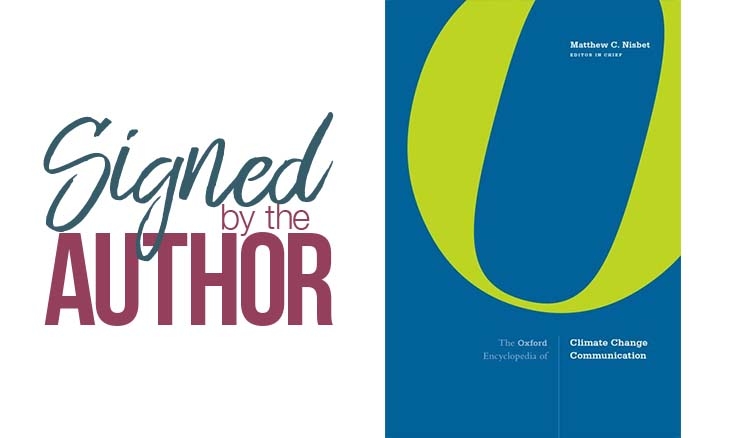 (DePaul University/Jeff Carrion)
(DePaul University/Jeff Carrion)
Chapter title: "Communicating about Fossil Fuel Divestment," by Jill Hopke, College of Communication; Luis Hestres, University of Texas - San Antonio
"Communicating about Fossil Fuel Divestment" analyzes how divestment is a socially responsible investing tactic to remove assets from a sector or industry based on moral objections to its business practices, with historical roots in the anti-apartheid movement in South Africa. Divestment campaigns seek to stigmatize the fossil fuel industry. Critics have also argued that divesting from fossil fuel assets would have little or no impact on the industry. Advocates have responded to this concern by arguing that not divesting is not a politically neutral act-it is, in fact, choosing the side of fossil fuel corporations.
What's the most surprising thing you learned while writing this chapter? (Image courtesy of Oxford University Press,)
(Image courtesy of Oxford University Press,)
While fossil fuel divestment is generally dated to a 2012 Rolling Stone article by climate activist Bill McKibben, drawing on inspiration from the anti-apartheid movement in South Africa, the idea actually traces back even further. Evidence dates to Greenpeace International work on "investor risk" in the early 1990s and of "unburnable carbon," first written about in 1989.
Persuade someone to read your book in less than 50 words.
Climate change is a defining challenge of our time. Understanding how to better communicate on the topic with individuals who hold a range of beliefs is crucial for advancing global climate action. This contribution to the "Oxford Encyclopedia of Climate Change Communication" helps readers understand the roots of fossil fuel divestment both as a climate action movement and tactic.
About the author:
Jill Hopke received her Ph.D. from the University of Wisconsin-Madison. Since then, she has developed a new undergraduate course at DePaul in climate change communication. Her research has been published in leading science communication and social media journals, including: "Public Understanding of Science" and "Environmental Communication." Her writing has been republished in the "International Business Times" and "Salon," as well as numerous local publications around the country.
Publisher, publication date, length:
Oxford University Press, January 2018, 2424 pages
Signed by the Author allows DePaul faculty and staff to introduce their recently published or upcoming book or chapter to the university community. To submit your book or chapter for consideration, contact Newsline.